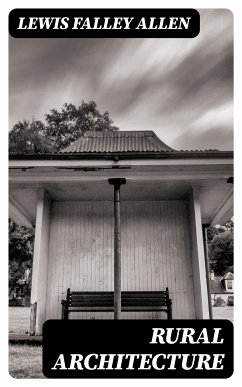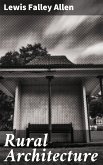In "Rural Architecture," Lewis Falley Allen delivers a meticulous examination of the symbiotic relationship between architecture and the rural landscape. Allen's work transcends mere design; he weaves an intricate narrative that interlinks aesthetics, functionality, and environmental harmony. Through detailed illustrations and accessible prose, the book presents a holistic perspective on rural building practices, emphasizing not only historical traditions but also contemporary applications. This text situates itself within the broader discourse of 19th-century architecture, reflecting the burgeoning interest in vernacular designs while advocating for sustainable practices that resonate with the natural environment. Lewis Falley Allen was a pioneer in the field of rural design, whose experiences growing up in a pastoral setting informed his understanding of spatial design and agrarian culture. His tenure as a professor and practitioner allowed him to explore and document the architectural vernacular of rural America, championing buildings that reflect the landscape's cultural and practical needs. Allen's insights are informed by both scholarly rigor and personal connection, making his work resonate with a sense of authenticity. "Rural Architecture" is an essential read for architects, historians, and environmentalists alike. It provides a treasure trove of knowledge for those interested in the intersection of architecture, nature, and community. Allen's reverence for rural spaces urges readers to reconsider how these elements can coexist harmoniously, making this book a vital addition to any scholarly collection.
Dieser Download kann aus rechtlichen Gründen nur mit Rechnungsadresse in A, B, BG, CY, CZ, D, DK, EW, E, FIN, F, GR, H, IRL, I, LT, L, LR, M, NL, PL, P, R, S, SLO, SK ausgeliefert werden.









